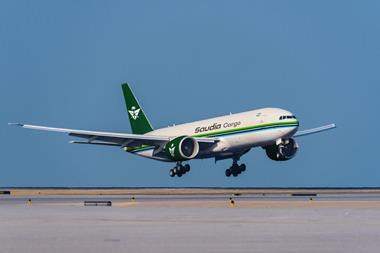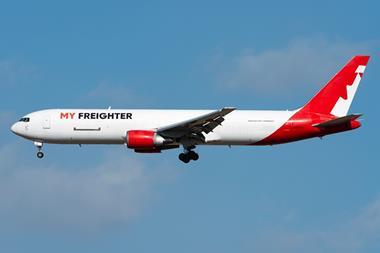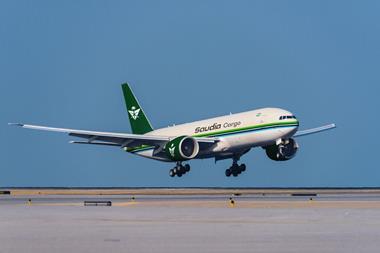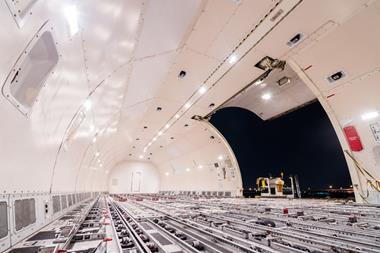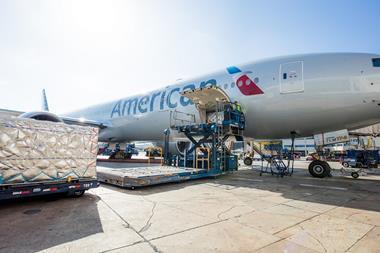Airfreight rates are expected to remain at an elevated level in the long term while freighters are expected to gain market share, according to a new whitepaper from Transport Intelligence (Ti).
The whitepaper predicts that there is a high likelyhood of structural change in the airfreight market as a result of the Covid-19 pandemic.
The report cites recent predictions from Boeing that the air fleet will grow by 3.2% annually over the coming 20 years, while cargo demand is expected to increase by around 4% each year over that same time frame.
"The logic of these numbers is that available belly freight capacity will fall. This suggests that the low freight rates seen in the ten years previous to 2020 have come to an end," Ti states in the paper.
This will also result in increased use of freighters in order to meet demand. Ti also predicts consolidation.
"There is likely to consolidation in the airline market, reducing both competition and capacity.
"Growth in passenger numbers is likely to be lower at least in the nearer-term, something amplified by greater barriers to movement through the use of various ‘health’ measures. Demand for airfreight, however, is likely to remain strong, with e-commerce in particular underpinning long-term growth.
"This suggests that networked airfreight or ‘air express’ solutions will take a greater share of the market."
The report also looked at the impact of Covid on the market in the short term, with volatile demand expected to keep the pressure on capacity.
Ti predicted: continuing constrained capacity; growing demand; geographically unbalanced demand; and continued high airfreight rates.
"Unusually the major problem is not demand but supply. This is very hard to estimate as it is unclear when passenger air services will recover.
"It may be that airlines will not be in a financial position to recommission their fleets for some considerable time, whilst there is a strong likelihood that any recovery will miss major tourist seasons and thus any incentive to put more aircraft in the air in the short-term will be less.
"It is very likely that airlines will focus on fewer, more profitable services. Thus, belly freight capacity will remain depressed. The incentive for more freighter services may also lessen as the prospect on a return to normality moves closer."










